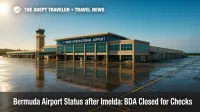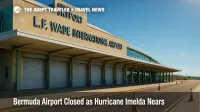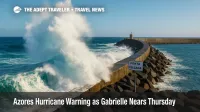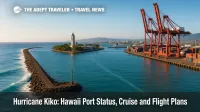Hurricane
Travelling during hurricane season can be a risky undertaking for the unprepared traveller, but with adequate preparation and awareness, your travels during these tumultuous weather conditions need not be an unpleasant experience. Hurricane season in the northern hemisphere typically runs from June 1 to November 30, and in the southern hemisphere, from November 1 to April 30. Depending on the severity of the hurricane and its predicted path, a proper and level-headed approach to your travels are essential.
When it comes to travelling during hurricane season, being aware of and gathering a plentiful supply of reliable and up-to-date information is of vital importance. Staying informed on the latest weather and safety advisories will help you identify potential risks and make appropriate decisions when the time comes. Be sure to establish and maintain contact with your family and friends, so they know your whereabouts and can notify the relevant authorities if needed.
Whether traveling to a hurricane-prone area or having to transit through one, it is important to make sure your mode of transportation is hurricane-safe. For air travel, check with the airline you are travelling with regarding the safety measures taken during hurricane season as well as their policy on cancellations/refunds should your flight be disrupted or route changed due to weather-related conditions. When travelling by car, invest in a satellite phone or GPS navigation device so you can access the most up-to-date information about the latest road closures and get timely warnings about extreme weather conditions.
Once you've reached your destination, being proactive about a few preparatory measures will ensure your safety and well-being during a hurricane. Prepare an emergency kit with items such as non-perishable food, bottled water, prescription medicines and a first aid kit. It is also a good idea to have an extra cell phone with back-up battery and a multi-band radio or battery-powered television, that way you can receive timely warnings and reliable updates from the local emergency services. If you’re staying in a hotel, find out what their evacuation policy is, and ask about the hotel’s hurricane protection plan.
If you find yourself directly in a hurricane's path, the most important thing to do is to evacuate if you have been advised to do so. Listen to the emergency services and take an alternate route if necessary. In addition, fill the bathtub and sink with water in case of water shortages. Put important documents in sealed containers in case of flooding. Bring any outdoor furniture indoors, and if it is too windy, consider securing outdoor objects, like trampolines, grills, and toys, to limit their potential to become hazardous projectiles. Lastly, make sure your car is fully fueled as there is a high likelihood that the power will go out along with the pumps.
When all is said and done, bear in mind it is best to err on the side of caution and be prepared for the worst. Stay up to date on the latest emergency advisories, establish a point of contact, and make sure your vehicle is road-worthy. Make sure your emergency kit contains all of the necessary items, and if you do need to evacuate, be sure to follow the instructions of the local emergency services. By taking these necessary safety precautions, your travels during hurricane season need not be an unpleasant or harrowing experience.
Priscilla intensifies; watches up for southern Baja as Mexican Riviera impacts build

Hurricane Priscilla nears Mexican Riviera; watches posted, cruise itineraries adjust

Bermuda travel update: L.F. Wade Airport, ferries, cruises

Bermuda cruise cancellations ripple post-Imelda

Bermuda airport status after Imelda: BDA closed for checks

Bermuda airport closed as Hurricane Imelda nears

Bermuda hurricane travel: Humberto, Imelda impact

Imelda travel impacts: Bahamas flights, cruise changes

Carnival Sunrise shifts Half Moon Cay stop to avoid Bahamas weather

Hurricane Humberto: What travelers should know this week

Atlantic tropics: Humberto swells, Bahamas system

Azores transport after Gabrielle: ferries, flights, cruise calls

Invest 94L may become Imelda near the Bahamas

Tropical Storm Humberto aims for major status offshore

Azores ports brace for Gabrielle: tender limits and closures likely

Azores hurricane warning as Gabrielle nears Thursday

Hurricane Gabrielle brings dangerous surf; Narda turns away

Hawaii watch: Kiko track, surf, and port status Sept 9 to 11

Hurricane Kiko: Hawaii port status, cruise and flight plans

Liberty of the Seas itinerary change skips Bermuda

Disney Fantasy itinerary change to avoid Hurricane Erin

Bermuda airline waivers as Hurricane Erin passes

Outer Banks closures, rip-current rescues as Erin exits

Hurricane Erin cruise diversions hit Norwegian Escape

Hurricane Erin Travel Update: Outer Banks to Bermuda

